‘The whole world must force Israel and Palestine to make peace’
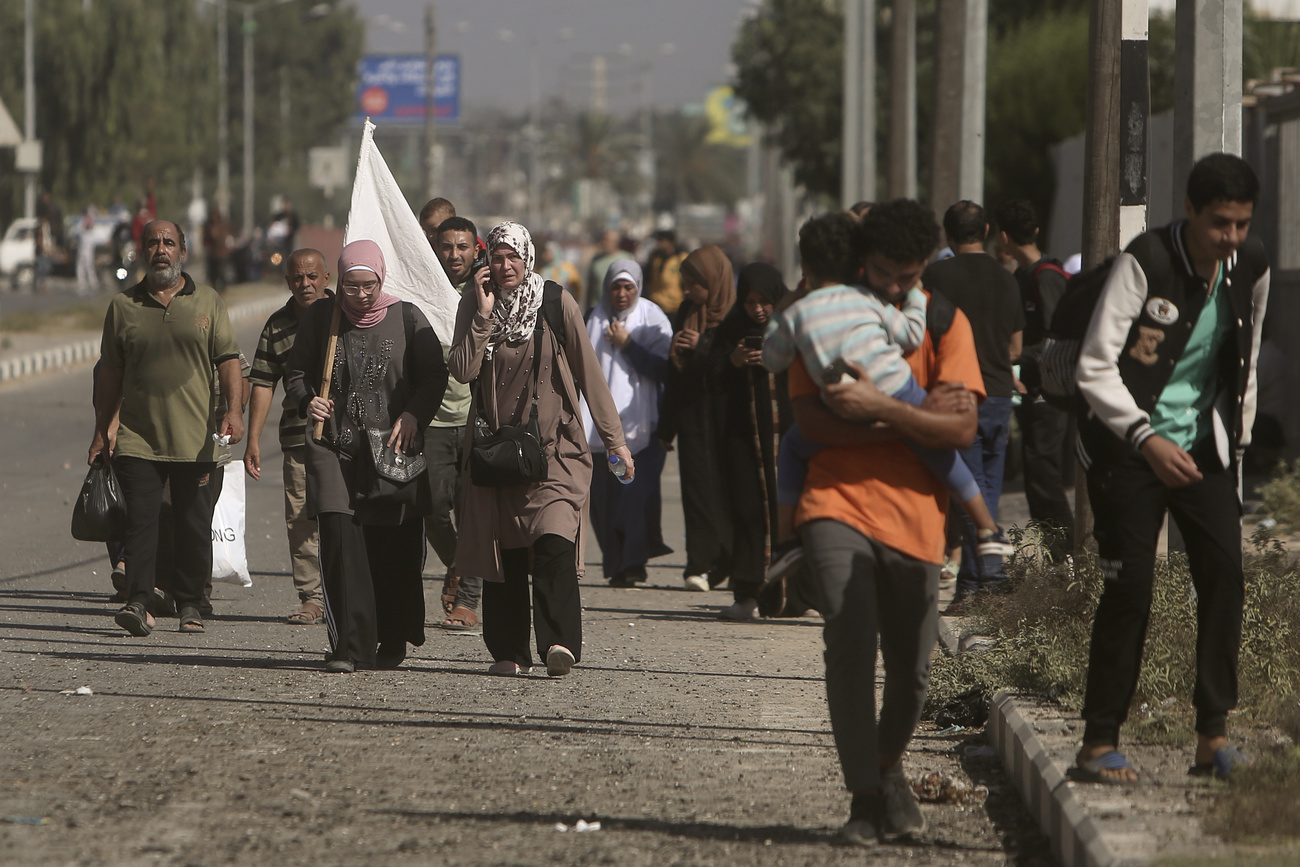
Only 81 Swiss nationals live in the occupied West Bank. Rami Daqqa, a Swiss-Palestinian dual citizen, is one of them. The 39-year-old talks to SWI swissinfo.ch about the mounting daily challenges since the outbreak of the Israeli-Palestinian war.
Rami Daqqa was born in the West Bank and moved to Switzerland at the age of 20. He completed a Master’s degree and worked in Switzerland before returning to his home country for a job at the end of 2016. He has lived in Ramallah with his wife and two children since 2017, where he works at a diplomatic mission of a European state.
SWI swissinfo.ch: How are you doing right now?
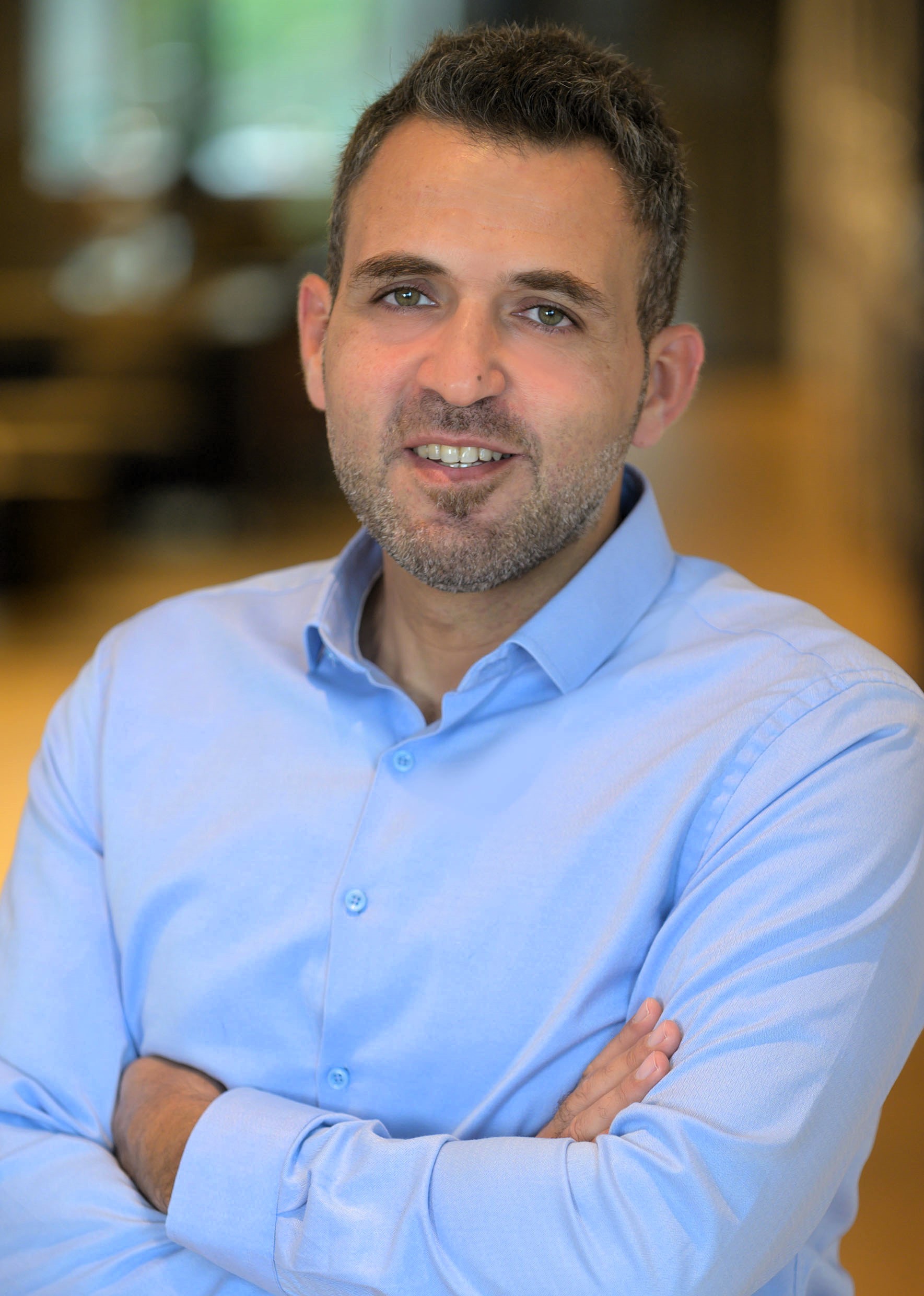
Rami Daqqa: I’m fine. The Palestinians here often say that they are doing well, even if they are not really doing well. But they are used to comparing bad with worse. If you ask someone in Ramallah today whether things are going well, they say yes. Because we are much better off here than the people in the Gaza Strip. We can’t compare our life here with a ‘normal’ life.
SWI: What is the situation like in Ramallah at the moment?
R.D.: Throughout the West Bank and here in the city of Ramallah, the situation has deteriorated a lot since the outbreak of war on October 7. It wasn’t easy here before. Normally Ramallah is a vibrant city, but now it’s as empty as Bern on a Sunday. People can no longer move around freely. Travelling to another Palestinian city is a risky undertaking. Also, many schools are closed or have switched to online teaching to prevent young people from having to move around.
SWI: What has changed for you generally since the outbreak of the war?
R.D.: Israeli military operations in Palestinian cities have increased, as has settler violence. It has become dangerous for Palestinians on the streets of the West Bank. As a Palestinian, you are at the mercy of the Israeli military and of settler violence. If you were to defend yourself or stand up for your rights, you would be arrested. I’ve experienced that myself. The only thing left for us is to flee and accept that we can’t change anything.
I live with my family in a safe neighbourhood. My office is also in what is actually a safe neighbourhood, where most of the diplomatic missions are located. Normally, there are no military operations there. But last week I couldn’t get to the office because the street was closed. There were casualties. This is not unusual right now. We see that every day, but the media and political focus is not on the West Bank.
SWI: Have you thought about returning to Switzerland?
R.D.: Honestly, yes. We are currently seeing how the situation develops. You can’t make plans in the West Bank. You make them anyway, but you know that they can change from one day to the next. For example, I promised my son that we would go to Switzerland for Christmas this year. Now I don’t know if that will be possible.
My children are five and a half and one and a half years old. The older one is slowly realising that he is Swiss and Palestinian. We are often in Switzerland. And he has already started to compare life here in Ramallah and in Switzerland. I don’t want my children to grow up in hatred between the Palestinians and the Israelis.
SWI: Does having a Swiss passport help in the current situation?
R.D.: No. It doesn’t matter if you have two passports as a Palestinian. For the Israeli occupation, you are a Palestinian. Even as a dual citizen, you can only use one border crossing towards Jordan. You can’t travel via the Israeli airport. I am an exception. But only because I work for a diplomatic mission.
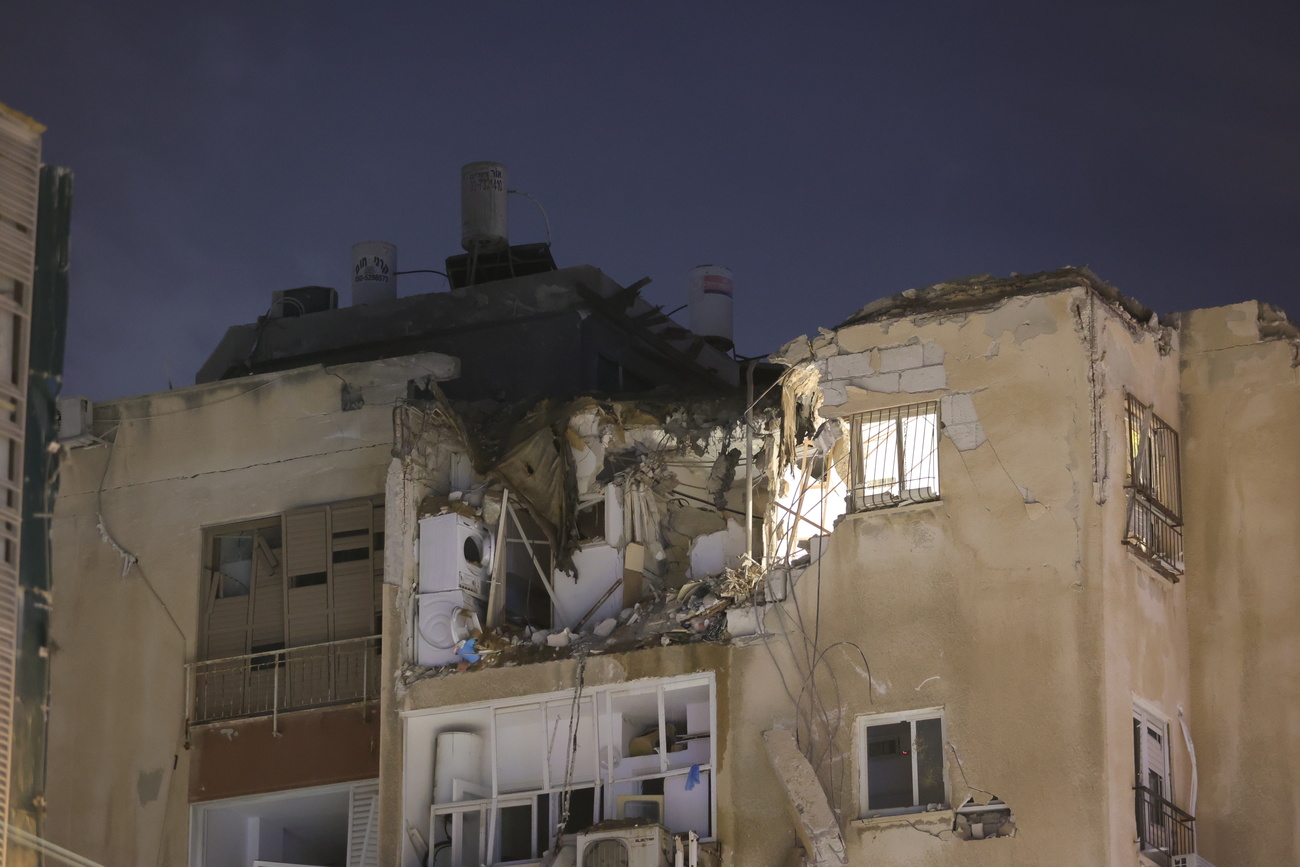
More
‘When the rocket alarm goes off, we go into the stairwell, as far away from the glass as possible’
SWI: How has your work at this mission changed in recent weeks?
R.D.: At the moment we are in a state of emergency. We are trying to support the people in the Gaza Strip and are answering a lot of enquiries from relatives abroad who are worried about their people. We have to re-analyse the situation on an hourly basis and are preparing for a further escalation. We are preparing for all scenarios. The focus is now on crisis planning.
All my employees are working from home. And the ambassador can no longer simply come to Ramallah. That’s why I’ve taken over the on-call duty and am the only one in the office.
SWI: Which media do you follow to keep up to date with the latest developments?
R.D.: I read a lot of Swiss media and watch Swiss television, and I also consume news from the US and Europe. At the moment, everything is going wrong with the media here in the West Bank. The Palestinians believe that the Israeli media is biased.
In my opinion, the coverage is 70% on the Israeli side and 30% on the Palestinian side. There are some media that only show Palestinians as terrorists. That is a completely false picture.
More
SWI: What’s your view on Hamas?
R.D.: Hamas is the result of all the conflicts over recent decades. Whether we Palestinians view Hamas as a Palestinian state or as a terrorist organisation doesn’t change much. It doesn’t help. In the Gaza Strip, it is the “de facto authority”. They are simply there. The people have no say in anything, whether in the West Bank or in Gaza. Hamas decided on the October 7 attack [against Israel], not the people. The question of whether the people condemn the attack is being asked of everyone. All Palestinians know that this is never right. Nobody wants war.
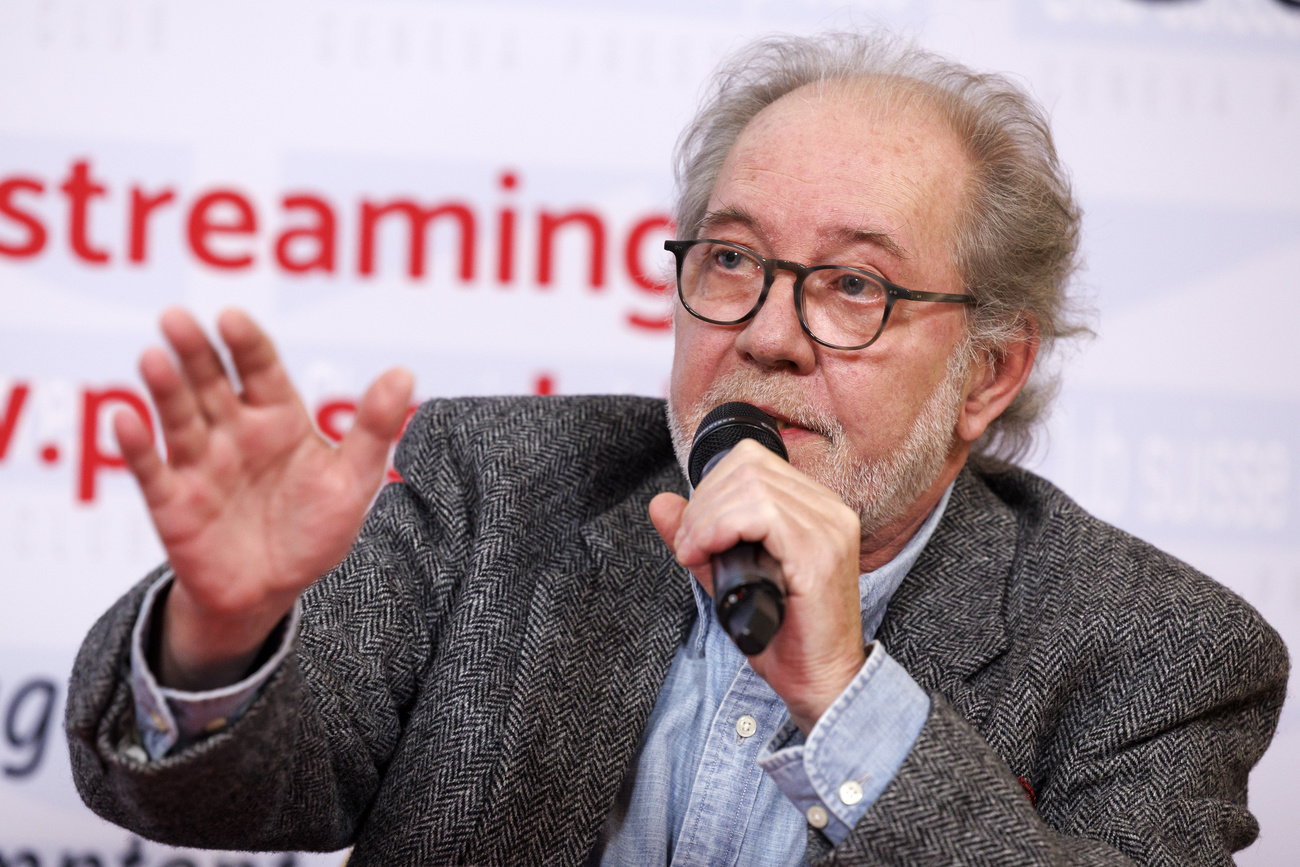
More
‘Declaring Hamas a terrorist organisation contradicts Switzerland’s neutrality’
SWI: What political measures should Switzerland and the European community take in the current situation?
R.D.: Stop double standards and political hypocrisy: the whole world must force Israel and the Palestinians to make peace. That is the only solution. Unfortunately, nobody on either side wants to start peace negotiations right now.
I am convinced that both peoples can live together, whether in one or two states. I can see how Palestinians and Israelis can work together. That is possible.
We just need better politicians who want that. Not everyone agreed with the Oslo Accords [interim peace accords negotiated by Israel and the Palestine Liberation Organization (PLO) in the mid-1990s.] But [former Israeli Prime Minister] Yitzhak Rabin and Yasser Arafat [former chairman of the PLO and first president of Palestinian Authority] had the courage to work together and try to find a common solution.

In compliance with the JTI standards
More: SWI swissinfo.ch certified by the Journalism Trust Initiative
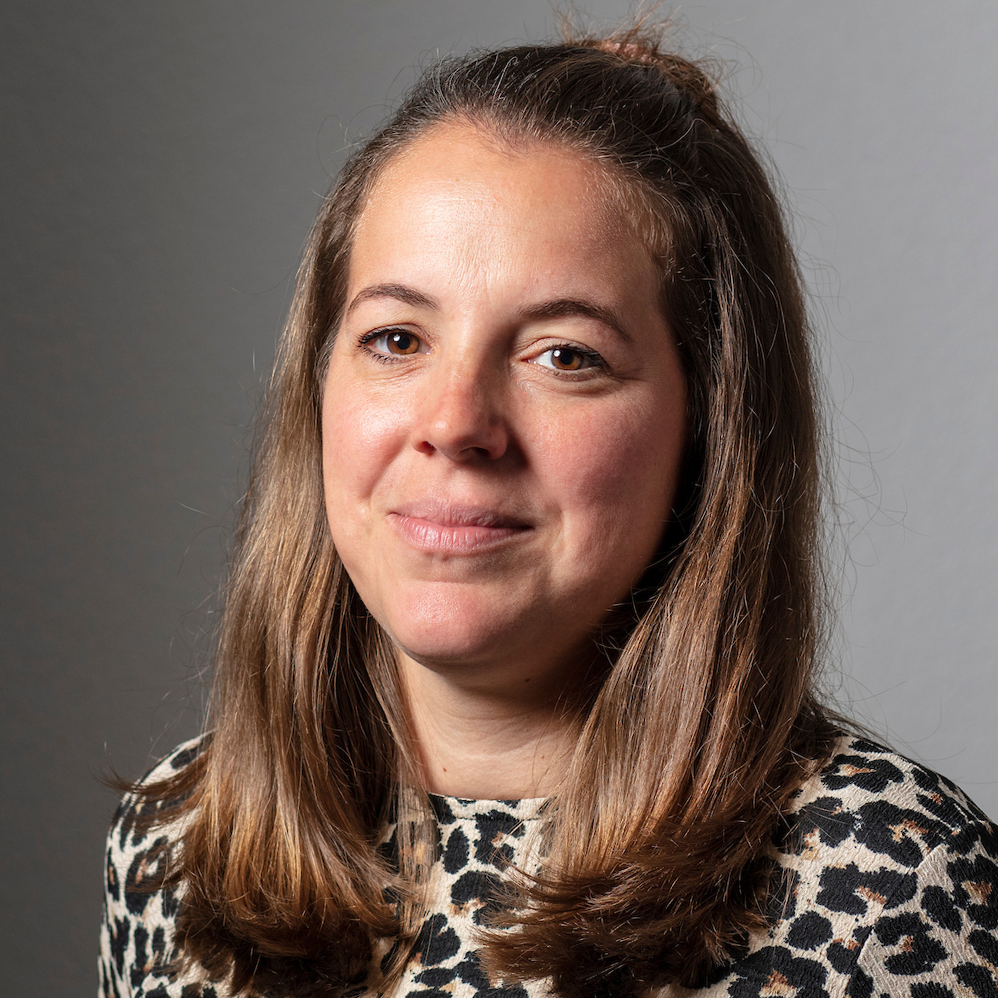
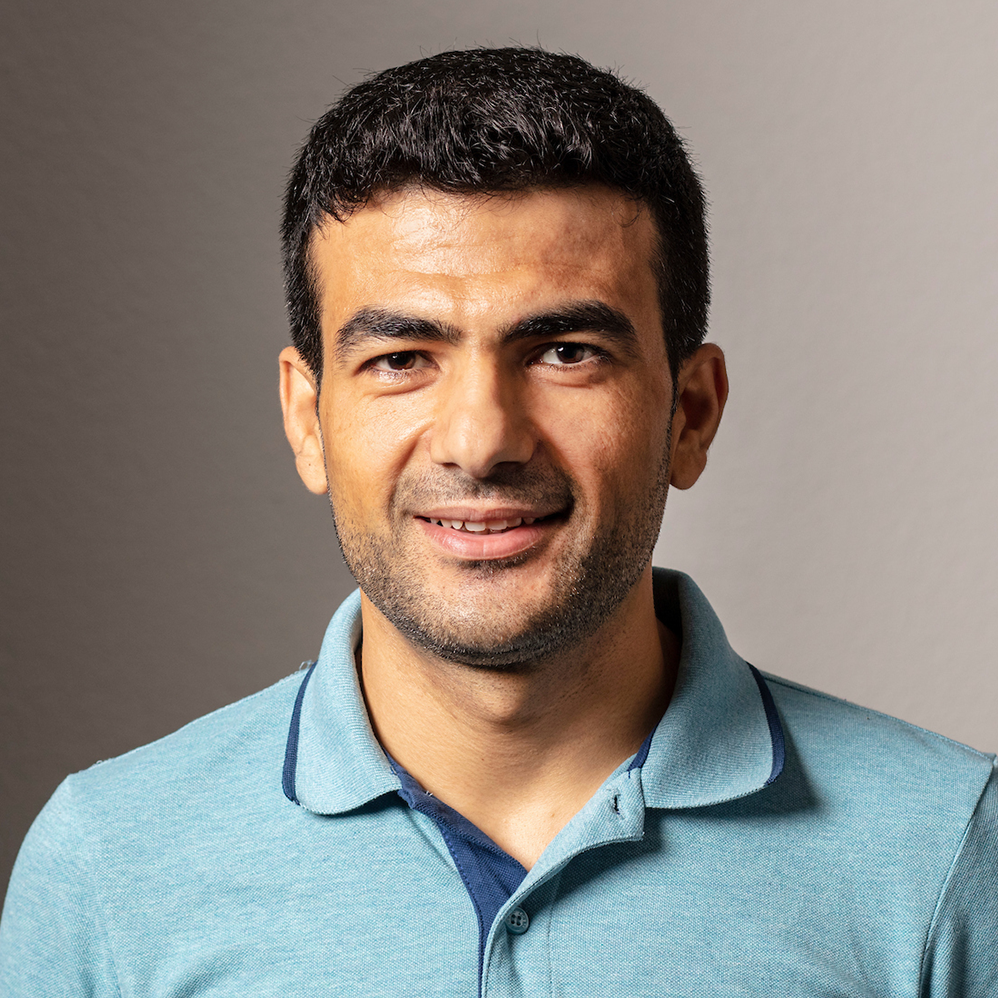
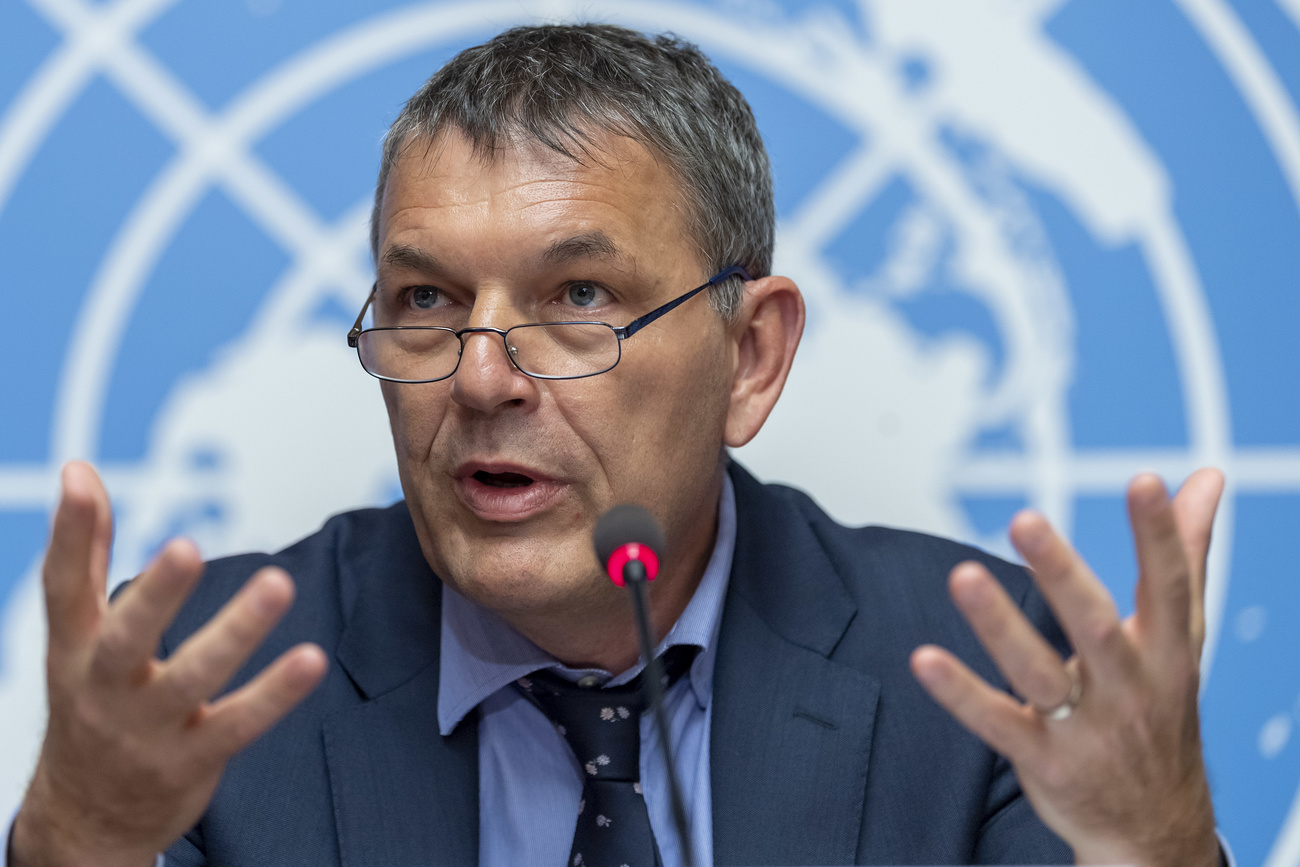
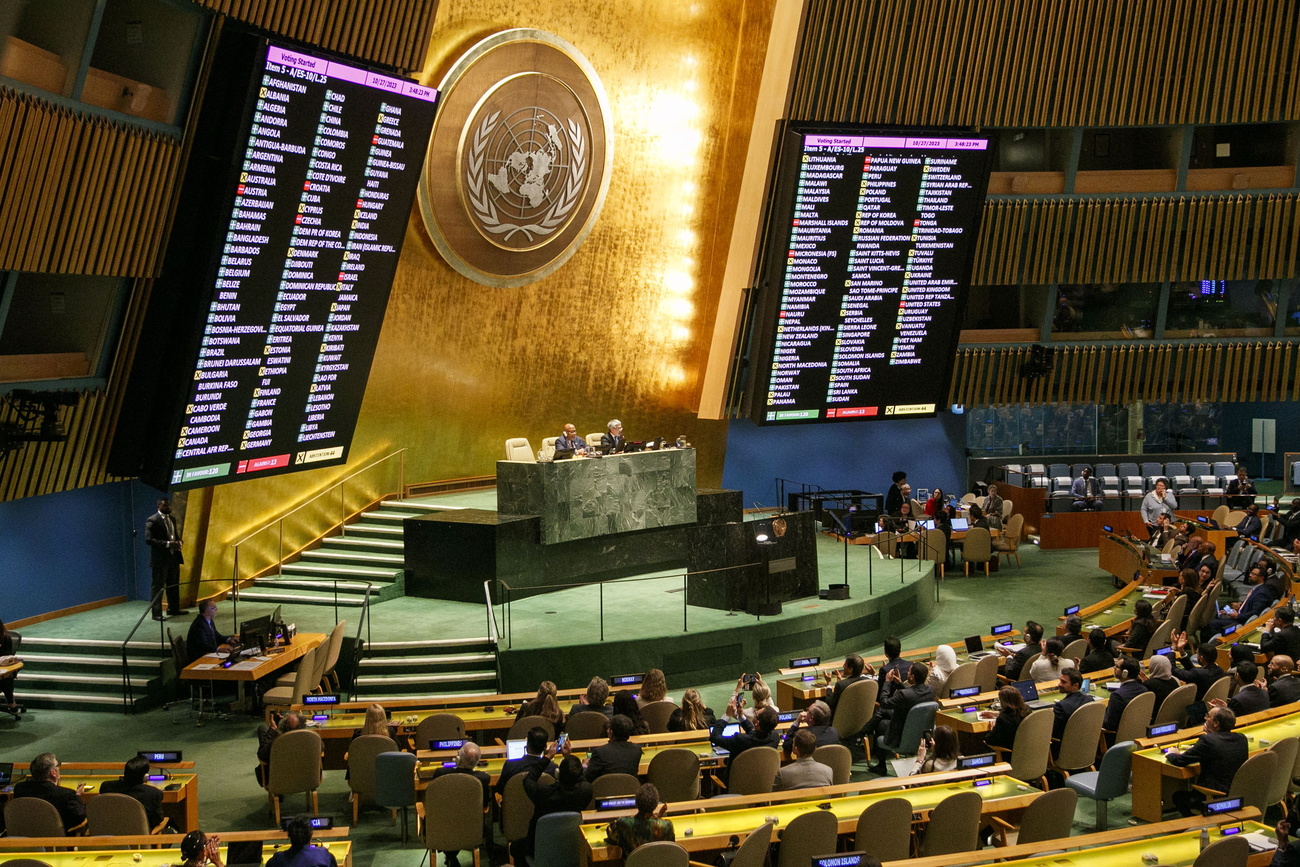
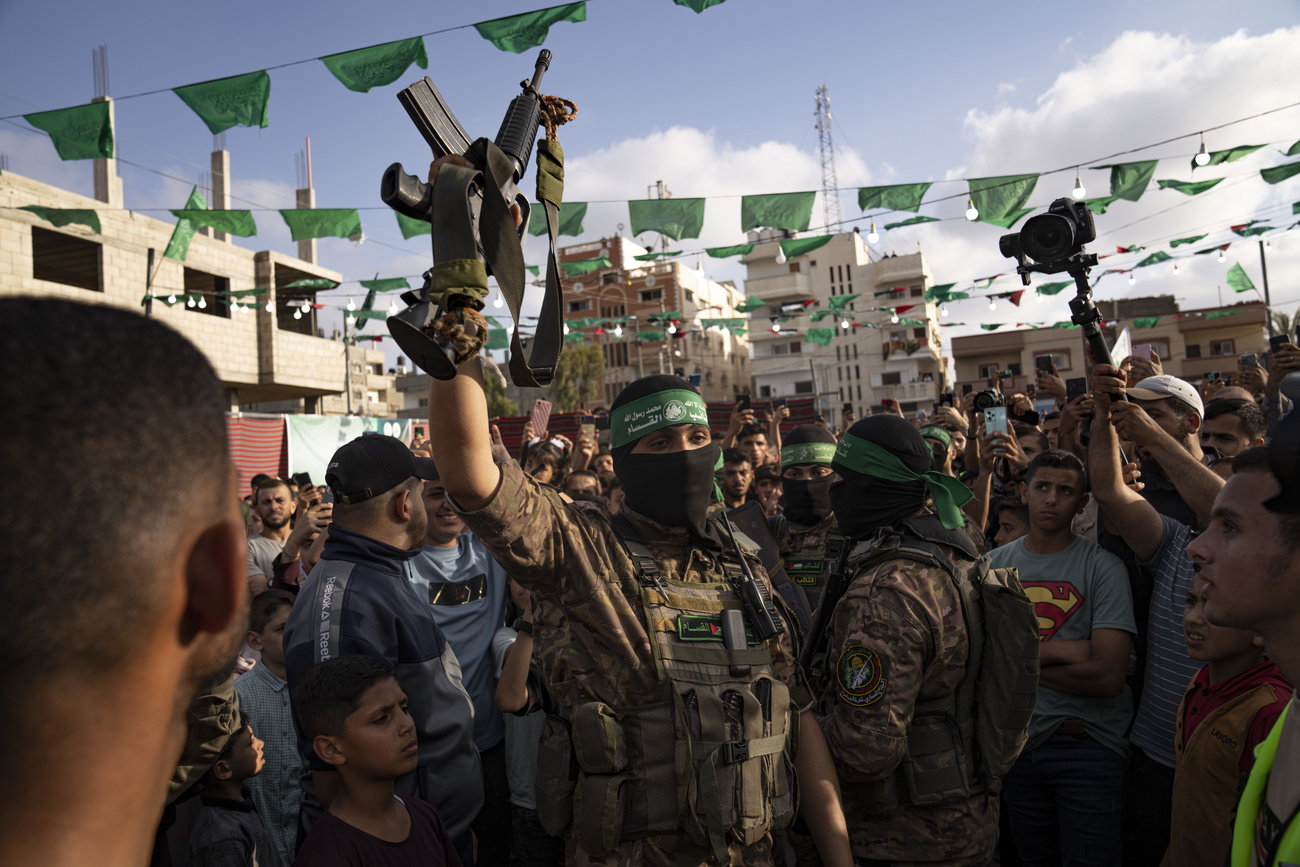
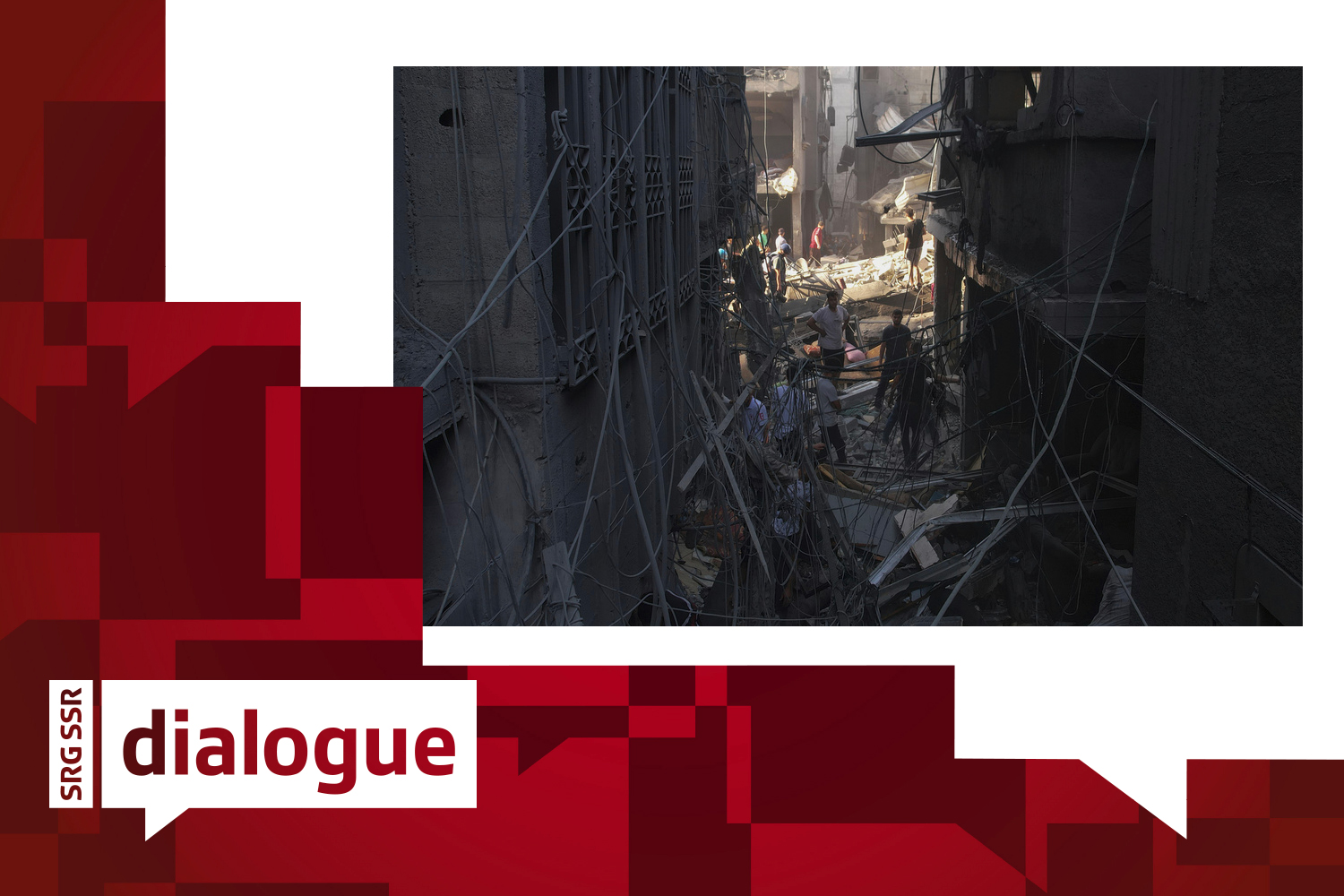
You can find an overview of ongoing debates with our journalists here. Please join us!
If you want to start a conversation about a topic raised in this article or want to report factual errors, email us at english@swissinfo.ch.